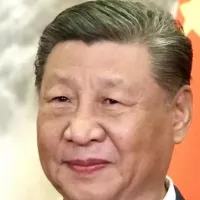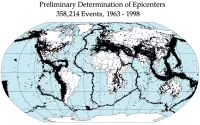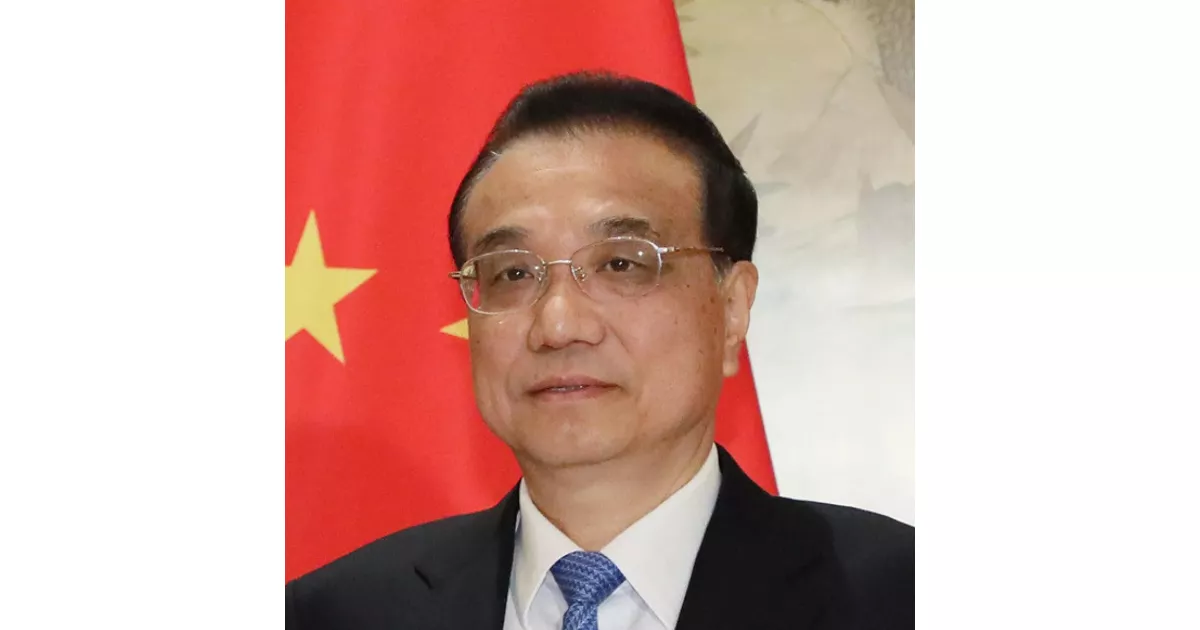Li Keqiang was a prominent Chinese politician and economist who served as Premier of China from 2013 to 2023. As the second-highest-ranking member of the Politburo Standing Committee, he held significant power within the Chinese Communist Party. Li was a key figure in the 'fifth generation of Chinese leadership,' alongside Xi Jinping.
1949: Speculation about Li Keqiang's Power Relative to Xi Jinping
There has been speculation that Li Keqiang's authority may have been diminished due to Xi Jinping's consolidation of power since 1949. Some observers have labeled Li as the "weakest premier" since the CCP came to power.
July 1955: Birth and Family Background
Li Keqiang was born in July 1955 in Dingyuan County, Hefei, Anhui province. His father held a local official position in Anhui.
1955: Early Life and Political Rise
Born in 1955, Li Keqiang's political journey began with his involvement in the Communist Youth League of China (CYLC).
1974: High School Graduation and Rural Labor
Li Keqiang graduated from Hefei No. 8 Senior High School in 1974, during the Cultural Revolution. He was subsequently sent to work in an agriculture commune in Fengyang County, Anhui.
1976: Joining the Chinese Communist Party
Li Keqiang joined the Chinese Communist Party (CCP) in 1976 while working in a rural commune. He excelled in his understanding of Mao Zedong Thought, earning recognition for his efforts.
1978: Entry to Peking University Law School
In 1978, Li Keqiang began his studies at Peking University Law School, where he pursued a legal education.
1982: Li Keqiang's Role in the Communist Youth League
Li Keqiang became the Communist Youth League of China (CYLC) Committee Secretary at Peking University in 1982.
1982: Graduation from Peking University Law School
Li Keqiang completed his Bachelor of Laws degree at Peking University in 1982.
1983: Joining the CYLC Central Committee Secretariat
Li Keqiang joined the top leadership of the national CYLC in 1983, working closely with future Party General Secretary Hu Jintao.
1985: Appointment as Secretary of the CYLC Secretariat
Li Keqiang's dedication and contributions led to his appointment as a secretary of the CYLC Secretariat in 1985.
1988: Return to Peking University for Graduate Studies
Li Keqiang returned to Peking University in 1988 to pursue graduate studies in economics under the guidance of renowned economist Li Yining.
1989: China's GDP Growth Falls Below 7.5%
In 1989, China experienced a year-on-year GDP growth rate of less than 7.5% for the first time.
1991: Publication of Doctoral Dissertation
Li Keqiang's doctoral dissertation, "On the ternary structure of Chinese economy", was published in 1991.
1993: Li Keqiang as CYLC First Secretary and the Youth Volunteers Operation
Li Keqiang became the CYLC's first secretary in 1993, a position he held until 1998. During this time, he established the CYLC's Youth Volunteers Operation.
1993: Li Keqiang Leads the Communist Youth League of China
Li Keqiang served as the first secretary of the Communist Youth League of China (CYLC) from 1993 to 1998.
1995: Completion of Master's and Doctoral Degrees in Economics
Li Keqiang earned a Master of Economics and a Doctor of Philosophy in Economics from Peking University in 1995.
1996: Sun Yefang Prize Awarded to Li Keqiang
Li Keqiang's doctoral dissertation was recognized with the prestigious Sun Yefang Prize, China's highest honor in economics, in 1996.
1997: Change in Premier's Ranking on PSC
In 1997, a convention was established where the premier ranked third on the PSC, after the chairman of the Standing Committee of the National People's Congress.
1997: Li Keqiang Becomes a Full Member of the CCP Central Committee
Li Keqiang's influence and standing within the CCP grew, leading to his elevation to full membership in the CCP Central Committee in 1997.
June 1998: Li Keqiang Becomes Governor of Henan
Li Keqiang became the youngest Chinese provincial governor in June 1998 when he was appointed governor of Henan at the age of 43.
1998: Li Keqiang Becomes Governor of Henan
From 1998 to 2004, Li served as the governor of Henan province and the province's party secretary.
1998: End of Term as CYLC First Secretary
Li Keqiang concluded his term as the CYLC's first secretary in 1998.
2002: Li Keqiang Becomes Henan's Communist Party Secretary
Li Keqiang was appointed Henan's Communist Party secretary, the province's highest political office, in 2002.
2003: Third Plenum of the 16th Central Committee
In 2003, then-Premier Wen Jiabao played a key role in drafting the documents for the reforms announced at the Third Plenum of the 16th Central Committee, a stark contrast to Li Keqiang's lack of involvement in a similar process in 2013.
2003: Li Keqiang Steps Down as Governor of Henan
Li Keqiang left his role as governor of Henan in 2003.
December 2004: Li Keqiang's Work in Liaoning: Infrastructure and the "Li Keqiang Index"
Li Keqiang initiated the "Five Points and One Line" project in Liaoning in December 2004, focusing on improving trade flow through a network of ports. During his time in Liaoning, he also developed the "Li Keqiang index," an alternative economic indicator.
2004: Henan's Economic Growth Under Li Keqiang
By the time Li Keqiang left his position in Henan in 2004, the province had experienced significant economic growth, rising from 28th to 18th in national GDP rankings.
2004: Li Keqiang Appointed Party Secretary of Liaoning
Li Keqiang assumed the role of party secretary of Liaoning in 2004, marking a significant step in his political career.
October 2007: Li Keqiang joins the CCP Politburo Standing Committee
In October 2007, Li Keqiang joined the CCP Politburo Standing Committee as its 7th-ranking member after the 17th Party Congress. He was succeeded in his Liaoning party secretary post by governor Zhang Wenyue.
2007: End of Term as Party Secretary of Liaoning
Li Keqiang concluded his term as party secretary of Liaoning in 2007.
2008: Li Keqiang Pushes for Economic Stimulus Program
As vice premier in 2008, Li Keqiang was instrumental in implementing an economic stimulus program to help China's economy recover from the Sichuan earthquake and the Great Recession.
2008: Li Keqiang Serves as Vice Premier under Wen Jiabao
Li Keqiang served as the first-ranked vice premier under Premier Wen Jiabao from 2008 to 2013, overseeing a wide range of areas including economic development and macroeconomic management.
February 2010: Li Keqiang Advocates for Economic Structure Change
In February 2010, Li Keqiang delivered a speech emphasizing the importance of transforming China's economic structure for sustained growth. He highlighted boosting domestic consumption, urbanization, and moving towards a more middle-class-centric society.
2010: Li Keqiang Presents China's Development Vision at World Economic Forum
Li Keqiang attended the 2010 World Economic Forum in Davos, Switzerland. He presented China's long-term development vision, emphasizing sustainable development, green energy, reducing income inequality, and modernizing key industries.
August 2011: Li Keqiang's Hong Kong Visit and the Hong Kong 818 Incident
In August 2011, Li Keqiang visited Hong Kong, including the University of Hong Kong. The visit was surrounded by political sensitivities and heightened security, leading to the controversial Hong Kong 818 incident.
2012: Li Keqiang Elevated to Number Two Spot on PSC
During the 18th CCP National Congress in 2012, Li Keqiang was promoted to the second-highest position on the Politburo Standing Committee (PSC), signaling his anticipated role as premier.
2012: Li Keqiang Viewed as Potential Successor to Hu Jintao
In 2012, Li Keqiang was seen as a potential successor to Hu Jintao as party leader. However, Xi Jinping outranked him on the Standing Committee, suggesting that Xi would be the one to succeed Hu.
2012: Li Keqiang Joins Politburo Standing Committee
Li Keqiang became a member of the Politburo Standing Committee of the Chinese Communist Party in 2012.
March 2013: Li Keqiang Elected as Premier of China
On March 15, 2013, Li Keqiang was elected Premier of China, succeeding Wen Jiabao. He received overwhelming support with 2,940 votes in favor, three against, and six abstentions.
May 2013: Li Keqiang's First Foreign Visit to India
Li Keqiang's first foreign visit as Premier was to India in May 2013. The visit aimed to address border disputes and strengthen economic ties between the two countries.
2013: Li Keqiang's Premiership and Economic Shift
As Premier, Li Keqiang facilitated a shift in China's economic priorities, moving away from export-led growth towards a greater emphasis on domestic consumption.
2013: Third Plenum of the 18th Central Committee
At the Third Plenum of the 18th Central Committee in 2013, the CCP announced significant economic and social reforms. Notably, Li Keqiang was not involved in drafting the reform document, unlike his predecessor, Wen Jiabao, who played a key role in the 2003 reforms. This fueled speculation about Li's diminishing influence and the centralization of power under Xi Jinping.
2013: Third Plenum and Li Keqiang's Reform Efforts
Following the Third Plenum in 2013, which called for a more significant role for market forces in resource allocation, Li Keqiang spearheaded the government's reform implementation.
2013: Xi Jinping's Rise and Li Keqiang's Diminishing Role
Following the Third Plenum of 2013, Xi Jinping assumed a series of powerful leadership roles, including overseeing economic reforms, a domain traditionally managed by the premier. While Li Keqiang was appointed to deputy positions in these new bodies, the move was seen as a reduction of his institutional power.
2013: Li Keqiang Becomes Premier of China
Li Keqiang assumed the position of Premier of China in 2013.
2013: Conclusion of Vice Premier Term
Li Keqiang concluded his term as vice premier in 2013.
2013: Li Keqiang's First Major Speech as Premier
On March 17, 2013, Li Keqiang delivered his first major speech as Premier, advocating for government frugality, fairer income distribution, and continued economic reforms. He stressed the need to shift towards a consumption-based economy.
2014: Economic Challenges and Policy Responses under Li Keqiang
In 2014, China faced economic challenges due to global pressures and reduced export demand, resulting in lower-than-expected growth. Li Keqiang's government implemented tax cuts for small businesses, urban renewal projects, and further rail construction to address the situation.
2014: Li Keqiang Criticizes Local Governments on Reform Implementation
In early 2014, Li Keqiang expressed concerns about the ineffective implementation of reform directives by local governments. He criticized them for interfering in matters beyond their purview and neglecting their responsibilities, emphasizing the importance of "execution and implementation" for successful reforms.
May 2015: Launch of Made in China 2025
In May 2015, Li Keqiang and his cabinet initiated the Made in China 2025 strategic plan.
2015: Li Keqiang and Narendra Modi's Selfie Diplomacy
During Indian Prime Minister Narendra Modi's visit to China in 2015, Li Keqiang and Modi engaged in a moment of "selfie diplomacy" by taking a selfie together at the Temple of Heaven.
March 2018: Li Keqiang Reappointed as Premier of China
In March 2018, Li Keqiang was reappointed as Premier of China by the National People's Congress (NPC) with a resounding majority of 2,964 votes in favor and only two against.
January 2020: Li Keqiang Leads China's COVID-19 Response
From January 2020, Li Keqiang assumed leadership of the Chinese government's response to the COVID-19 pandemic. He visited Wuhan, the initial epicenter, on January 27 to oversee outbreak prevention efforts.
March 2022: Li Keqiang Announces Retirement Plans
Li Keqiang confirmed in March 2022 that he would step down as premier upon completing his second term in March 2023, ending speculation about his future in the CCP Politburo Standing Committee.
August 2022: Li Keqiang's Censored Speech on Deng Xiaoping
In August 2022, Li Keqiang delivered a speech in Shenzhen praising Deng Xiaoping and his economic reforms. This speech was later censored by the Chinese government, highlighting the sensitivity surrounding discussions of economic and political liberalization.
October 2022: Li Keqiang Steps Down from CCP Central Committee
During the 20th National Congress of the Chinese Communist Party in October 2022, Li Keqiang stepped down from the CCP Central Committee, marking a significant step in his exit from the highest levels of Chinese politics.
October 2022: Li Keqiang Steps Down from Politburo Standing Committee
Li Keqiang stepped down from the Politburo Standing Committee in October 2022.
2022: Li Keqiang Steps Down from Politburo Standing Committee
Li Keqiang stepped down from his role on the Politburo Standing Committee in October 2022.
March 2023: Li Keqiang Retires as Premier
After serving two terms, Li Keqiang retired as Premier of China in March 2023.
March 2023: Li Qiang Succeeds Li Keqiang as Premier
Li Keqiang was succeeded as premier by Li Qiang in March 2023.
March 2023: Li Keqiang's Term Ends, Succeeded by Li Qiang
Li Keqiang's term as premier officially ended in March 2023, and he was succeeded by Li Qiang, a close ally of Xi Jinping. His farewell speech, although censored, reportedly included the remark, "While people work, heaven watches. Heaven has eyes."
August 2023: Li Keqiang's First Public Appearance After Retirement
In August 2023, Li Keqiang made his first public appearance since retiring as Premier, visiting the Mogao Caves in Gansu. This turned out to be his last public appearance before his death.
October 2023: Li Keqiang Passes Away in Shanghai
Li Keqiang died in Shanghai on October 27, 2023, at the age of 68, following a heart attack. Reports suggested that the heart attack occurred while he was swimming and that his health may have been impacted by long-term use of anti-rejection medication following a liver transplant and coronary artery bypass surgery.
October 2023: Death of Li Keqiang
Li Keqiang passed away in October 2023 from a heart attack, a few months after leaving office.
2025: Target Year for Made in China 2025
The Made in China 2025 initiative, launched during Li Keqiang's premiership, set ambitious goals for China's technological advancement by the year 2025.
Mentioned in this timeline
India officially the Republic of India is a South Asian...

Xi Jinping is the paramount leader of China holding the...
Hong Kong is a densely populated special administrative region of...
China officially the People's Republic of China is an East...

An earthquake is a sudden shaking of the Earth's surface...

Hu Jintao is a retired Chinese politician who held significant...
Trending
25 minutes ago Northeastern University Achieves Record Applications for Seventh Year due to Co-ops.

25 minutes ago Michigan State defeats Purdue in a close basketball game, 76-74, at Purdue.

25 minutes ago Experts Discussed Risks of Wider War with Iran, Military Capabilities, and Potential Outcomes.

1 hour ago Peyton Stearns vs Kimberly Birrell: ATX Open 2026 Prediction and Odds

1 hour ago Alexis Wilkins, Kash Patel, and alleged FBI perks stir controversy and public scrutiny.

1 hour ago Starling Marte and the Royals: Agreement Reached, Possible Contract, Free Agency
Popular

Jesse Jackson is an American civil rights activist politician and...

Hillary Diane Rodham Clinton is a prominent American politician lawyer...

XXXTentacion born Jahseh Dwayne Ricardo Onfroy was a controversial yet...

Michael Joseph Jackson the King of Pop was a highly...

Barack Obama the th U S President - was the...

Kashyap Pramod Patel is an American lawyer who became the...
